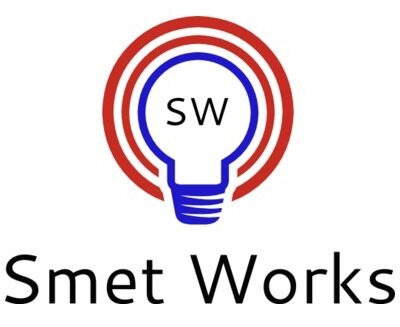One late evening, my client – the CFO of a mid-sized international company – called me and asked “Luc, is our environmental permit valid and up-to-date?” The question, the person who asked it and the timing reveal elements that are characteristic of my work. Let me explain.
My clients are typically CFOs, COOs, VPs or functional business leaders with a broad scope of responsibilities within their organization. They focus on their core responsibilities but know that non-core activities are also important. They hire me to manage the latter so that they don’t have to worry about it.
The question about the environmental permit is typical in that respect. In “normal” situations, the CFO wouldn’t think about it, but we all know that “normal” often is the exceptional condition in this VUCA world. Having someone who can inform you about the status of something non-core, like a permit, may well be more than nice to have when push comes to shove.
This brings me to the last element of my example: timing and availability of information. When a CFO is in a late evening meeting, he must be able to find what he needs at that very moment. It often concerns confidential information or the timing of the question might trigger certain assumptions with certain people, leading to rumors within the company. Trust, confidentiality, integrity, and availability are essential aspects of my work.
Other questions I receive look like
- How much can we grow before our building infrastructure is too small?
- What investments are we facing giving new, more stringent sustainability targets?
- How can we improve our physical security?
- What is the trend of our OPEX costs and how can we reduce OPEX structurally?
- We have a “special” project and need someone to manage it
To achieve successful and sustainable results, I attach great importance to
- An open communication with my client’s management team, based on mutual trust
- A clear organization of the Facilities team, in which I can take on a coaching and supporting role
- Clear communication to the entire organization regarding Facility Management
- Close cooperation with HR and IT (and EH&S, depending on the assignment)
- A constructive relationship with the Finance and Purchasing Departments
Adequate Facility Management helps business leaders to
- Reach their business goals
- Execute their company strategy
- Increase employee satisfaction
- Improve profitability
- Assure legal compliance
- Improve customer satisfaction
- Strengthen sustainability performance
To realize the added value in Facility Management, I focus on 3 elements

1. Supporting the core activities of the company
- Ensuring infrastructure that suits business needs
- Organizing facility services
- Aligning all facility activities with the company’s strategic plan
Examples
- Managed the finishing and commissioning of a building according to my client’s wishes (technical installations, furniture, painting, security systems, …) followed by the moving of 150 employees to the new building. Lead-time of 6 months.
- Coordinated the expansion and renovation of a production plant, incl. offices. Lead-time of 18 months.
- Managed the renewal and expansion of the electrical installation of a site, incl. installing an emergency power unit and a second transformer
- Made an extensive study of outsourcing data centers versus expanding internal data center infrastructure
2. Improving the company’s working environment
- Aligning the workplace design with the needs of the users
- Improving employee experience
- Increasing productivity, efficiency, and effectiveness
Examples
- Installed COVID-19 measures to guarantee a safe work environment incl. cloud-based CO2 sensors
- Defined together with HR a Hybrid NWOW strategy and policy (Bits, Bricks, Business, Behavior), including the introduction of Flex Desks and an associated reservation application (Envoy)
- Improved visitor reception management
- Introduced new office furniture (330 desks)
- Coordinated the renewal and expansion of fire, burglar, access control and security camera systems on 3 sites thus improving safety and security


3. Advising and supporting the company’s management team
- Building an FM organization, creating processes and procedures, structuring information and turning data into insights
- Monitoring current and future legal obligations and trends
- Managing OPEX and CAPEX budgets
Examples
- Contract management for energy, physical security, cleaning, HVAC, catering, leasing, insurance, waste handling, …
- Creating a long-term infrastructure Masterplan for a Belgium based business
- Standards: ensuring compliance of FM processes with ISO9001 (quality), ISO27001 (security), ISO14001 (environmental) – the latter also incl. project management with the aim of certifying 3 sites
My approach toward results follows these steps
Together with the client’s management team, I define the demand for infrastructure and facility services, aligned with the business strategy and based on an assessment of the as-is and to-be situation; this assessment can have a technical, organizational, compliance, or another framework.
Subsequently, I provide the necessary infrastructure and facility services through insourcing, outsourcing, and project management and I monitor the implementation and delivery of services and activities.
Finally, I stay on top of things in order to be able to switch quickly in the event of changes in the strategy or in the core business, in such a way that infrastructure and facility services always optimally match the needs of the company.
Potential ways to cooperate are
- Consultancy in the form of assessment, analysis, and advice: I present a report with findings and advice
- Project management: I manage one or more projects
- Interim management: I temporarily take up a role in the client’s organization
